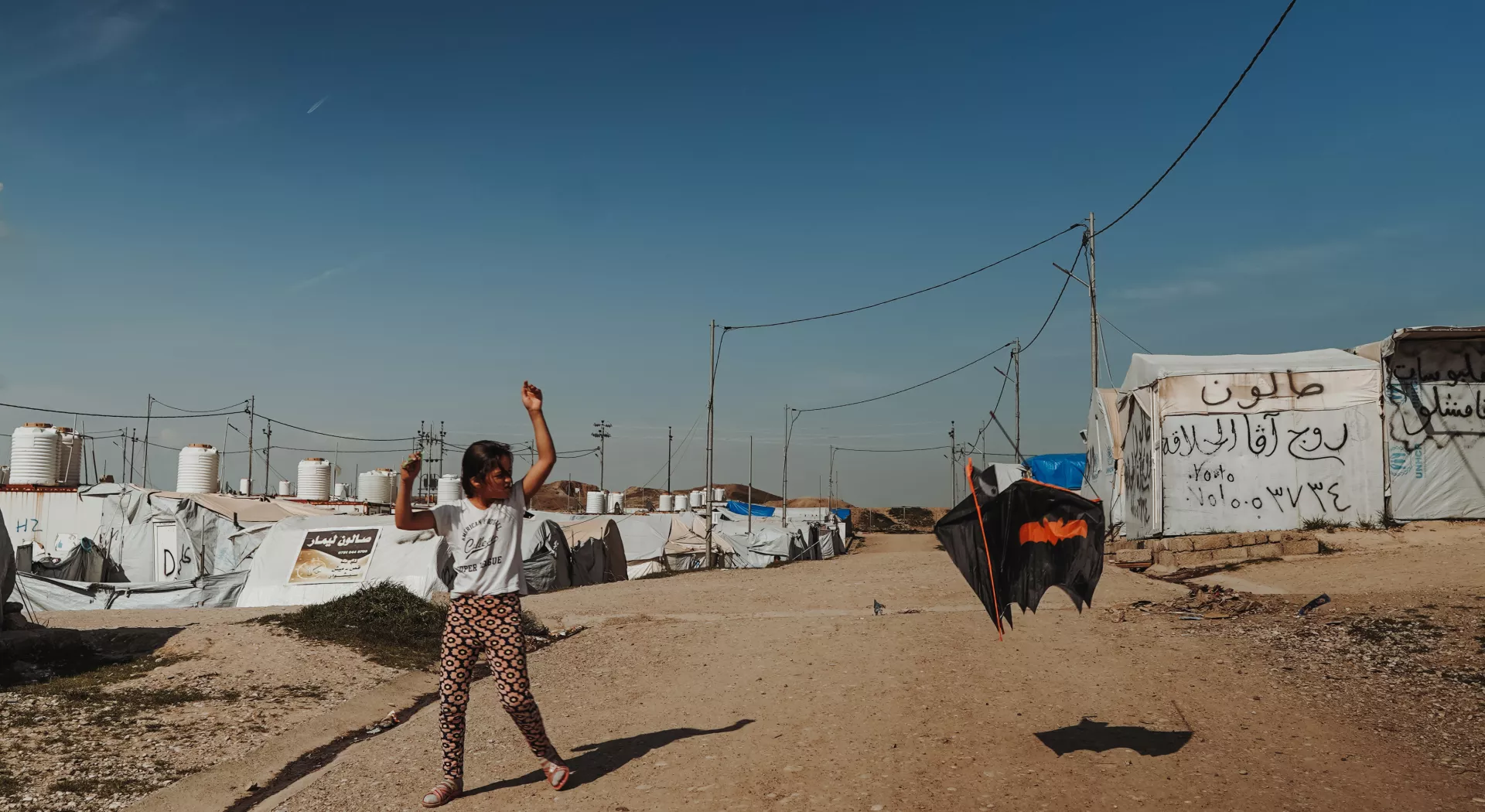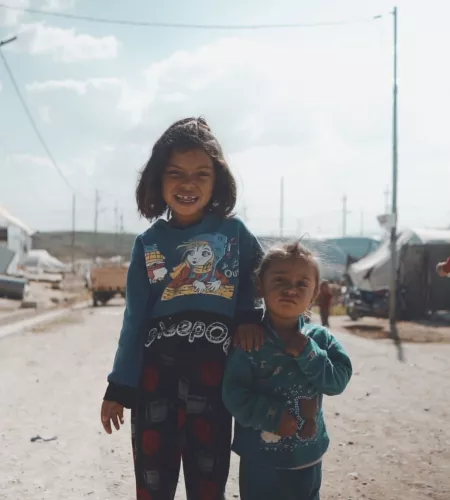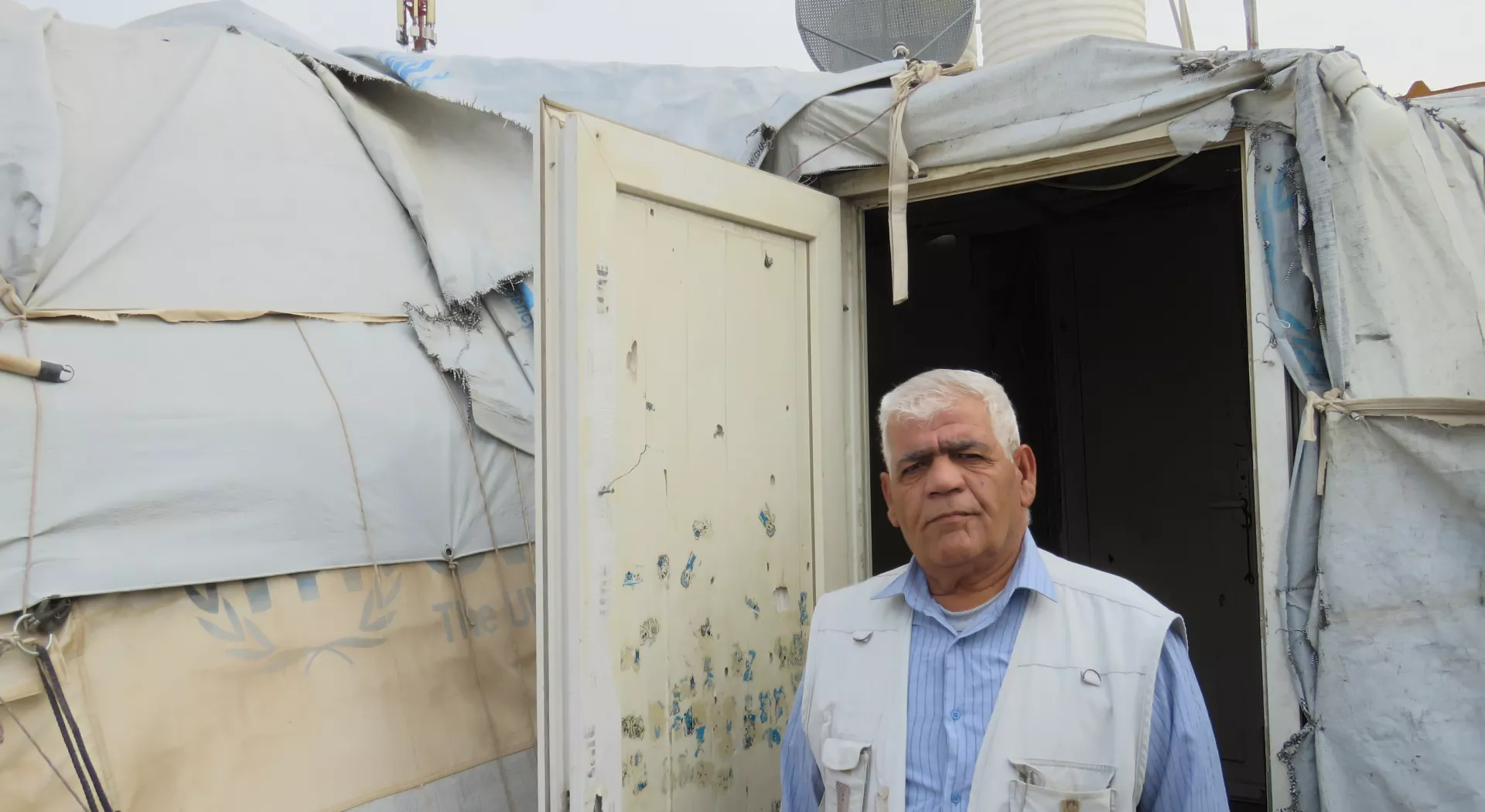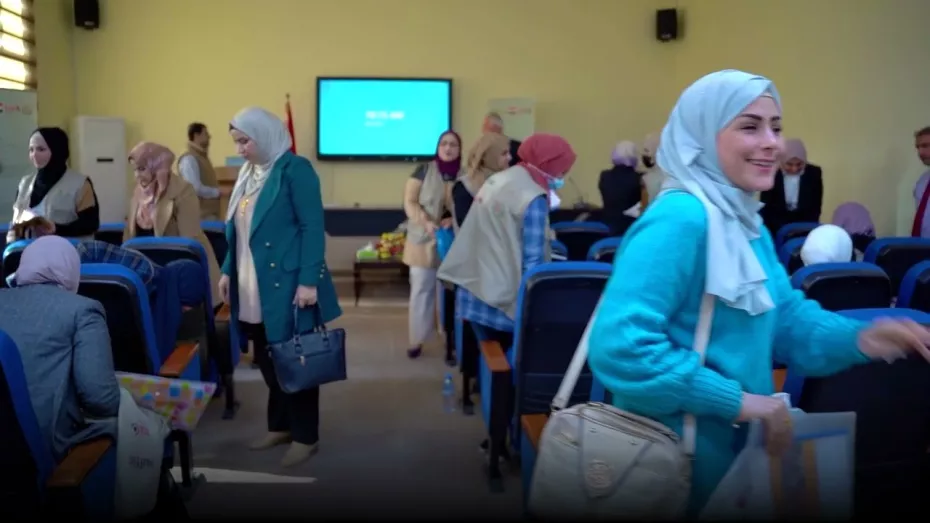ZOA has been working in Iraq since 2014, initially in the north where people were fleeing from ISIS. Over the past years, millions have returned to their homes. ZOA supports them with programmes in three sectors: Peacebuilding, Education, and Food Security and Livelihoods. We also help families that lived under ISIS with shelter and basic provisions in Bardarash Camp, Dohuk. Our working areas are Anbar governate, Ninewah governate, and Bagdad governate.

We are here in Iraq
Five years after liberation from the Islamic State (IS), many parts of Iraq remain in ruins. Millions of people were forced to flee their homes and 1,2 million Iraqis are still displaced. Of those who returned, many are living in vulnerable situations due to trauma, poor economic situation and incomplete rehabilitation of housing, basic services and livelihood opportunities.
Dealing with the legacy of war
PHYSICAL AND ECONOMICAL RUINS in iraq
The long and complex path to recovery
The struggle against ISIS has had far-reaching consequences. The humanitarian context in Iraq remains fragile, characterized by protracted internal displacement. Moreover, the psychological damage suffered by the people who lived under the Caliphate’s reign of terror is also immense.
An impression of ZOA's work in Iraq
The impact of ZOA's work in Iraq in 2022
With a team of 15 staff members, we supported 7,061 people in rebuilding their lives.
Livelihoods: a Climate Smart Agriculture approach
In recent years, Iraq’s economy has suffered a total collapse. Many people had to use up all their savings and sell all their possessions, just to survive. ZOA focuses on rebuilding the agricultural sector by equippingcommunities with the skills, knowledge, and assets they need to have resilient, sustainable livelihoods in the face of climate threats in Iraq. In 2022, ZOA successfully implemented many livelihood projects well aligned with a specialised Climate Smart Agriculture approach. Climate-smart agriculture is an integrated approach to manage landscapes – cropland, livestock, forests and fisheries that address the interlinked challenges of food security and climate change.
ZOA also support small businesses by offering business-owners training in entrepreneurship and technical skills. In Ninewa, ZOA implements a long-term livelihood project supporting conflict affected businesses by providing business training and business grants. So far, 64 businesses have been rehabilitated in Mosul city, whereas 225 businesses will be re-established in Tel Afar. The project also includes Cash for Work. Furthermore, we give special attention to young people. Many of them had to stop school as teenagers out of necessity, and they have already faced loss, fear, and terrible violence. We do not want to regard them as a 'lost generation'. That is why we do our best to help them find work and take their place in society. ZOA supports young people and women in preparing business plans and then disbursed in-kind grants.
Feeling safe again
ZOA provided educational support to prevent violent extremism and improve resilience in primary and secondary education and the wider community in Mosul. A total of 347 female teachers, 306 male teachers, 19 female principals, 29 male principals, 2,067 mothers, and 1,178 fathers participated in the Prevention of Violent Extremism through Education (PVE-E) training in Mosul in the first half of 2022. Children and youth have been reached by trained teachers and parents in the PVE curriculum that promotes the understanding, recognition, and mitigation of thoughts and behaviour patterns that may lead to extreme violence in their pupils and children.
ZOA Iraq has been implementing the 'safe space for every child' project, which is focused on providing psychosocial support (PSS) to vulnerable children in Mosul, with a specific focus on children with disabilities. In the project, children are served with PSS activities and catch-up education. In addition, the parents of the children are trained in the ZOA Community Cohesion Curriculum, which gives trainees hope and future perspective to build their lives positively, the lives of their family members, and their communities.

working together
Donors and partners
Governments and multilateral organisations provide the majority of external funding contributions to ZOA Iraq’s humanitarian emergency responses, either directly or through consortia. ZOA takes a hybrid approach for a diversified implementation strategy, consisting of direct implementation, working in consortia with both international and national NGOs, and working with and through local implementing partners.
Our donors include: UNESCO, European Commission Humanitarian Aid, United Nations Development Programme (UNDP), Food and Agriculture Organization (FAO), Iraq Humanitarian Fund (IHF), GIZ, BMZ, Dutch Ministry of Foreign Affairs, Nuffic and the Bureau of Population, Refugees and Migration of the United States.
We partner with among others: Al-Khiamiat Organisation, Sorouh for Sustainable Development Foundation (SSDF), Women Empowering Organization (WEO), Iraqi Institute for Development (IID), Sustainable Peace Foundation (SPF), Hawa Organization, Dijla Agricultural Association (DAA), Ashor Iraqi Foundation for Relief and Development CAPNI.

Mohamed from Qamishlo, Syria, currently living in Bardarash Camp

